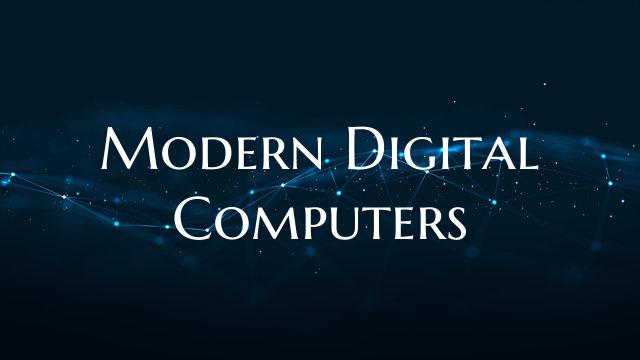Modern Digital Computers
Modern Digital Computers: Revolutionizing the Digital Age
In the fast-paced world of technology, modern digital computers stand at the forefront of innovation and advancement, shaping the way we work, communicate, and live our lives. From sleek laptops to powerful servers, these sophisticated machines have become an indispensable part of our daily routines, driving progress and facilitating connectivity on a global scale.
At the heart of modern digital computers lies a complex network of transistors, circuits, and processors that work together seamlessly to process vast amounts of data at lightning speed. Through binary code and the manipulation of electrical impulses, these computers can perform a myriad of tasks, from simple calculations to intricate simulations and complex algorithms.
One of the key features that set modern digital computers apart is their ability to multitask efficiently, thanks to the evolution of operating systems and software applications that optimize performance and streamline workflow. This versatility allows users to run multiple programs simultaneously, increasing productivity and enabling a diverse range of applications across various industries.
Moreover, the advent of cloud computing has revolutionized the way we store and access data, leveraging the power of modern digital computers to create virtual storage solutions that offer scalability, flexibility, and enhanced security. This shift towards cloud-based services has transformed traditional computing practices, providing individuals and businesses with the resources they need to thrive in the digital age.
With the rise of artificial intelligence and machine learning, modern digital computers are pushing the boundaries of what was once thought possible, paving the way for advanced automation, predictive analytics, and intelligent decision-making. These technologies are reshaping industries such as healthcare, finance, and manufacturing, offering innovative solutions to complex challenges and driving efficiency and innovation across sectors.
In conclusion, modern digital computers are at the forefront of technological progress, playing a pivotal role in shaping the digital landscape and driving innovation in our increasingly interconnected world. As we continue to push the boundaries of what is technologically feasible, these powerful machines will remain at the vanguard of change, spearheading the evolution of computing and ushering in a new era of possibility and potential.

